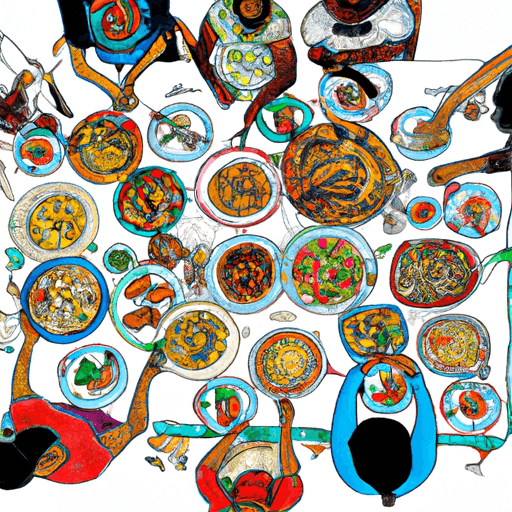The Culinary Impact of Cultural Exchange: A Historical Perspective
Food is a universal language that transcends borders, cultures, and times. Yet, it's continuously being reshaped by forces like migration, trade, and globalization. This article embarks on a culinary journey through the lens of cultural exchange to discuss how these elements transform traditional cuisines and impact cultural identities, societal norms, and culinary traditions.
A significant part of such transformationsal processes is the cultural exchange via migration. People bring their indigenous culinary practices with them while moving, facilitating exposure to new food customs. For instance, Italians brought pizza to the United States, leading to a culture-immersed evolution with different toppings representative of various US regions.
The Role of Trade and Globalization
The exchange of ideas, customs, and goods through trade and globalization has played a paramount role in culinary transformation. Take, for example, the introduction of chili peppers to Asia and India by Portuguese traders, which are now quintessential components of their cuisines. Similarly, the widespread popularity of sushi outside Japan exemplifies how globalization allows for the sharing and adaptation of food traditions.
Implications and Consequences of Culinary Transformation
Cultural exchanges in gastronomy can either lead to cultural enrichment or a loss of originality, depending on multiple factors. On one hand, they enable culinary fusion, where new distinct dishes arise from combining various cuisine elements. A popular example is Tex-Mex, a fusion of Mexican and American cooking styles.
On the other hand, these exchanges might threaten the survival of traditional cooking, potentially wiping out significant cultural heritage. The growing dominance of fast food, for instance, has been criticized for diluting culinary norms and identities worldwide.
Future Prospects: Culinary Fusion or Loss of Original Cuisine
Looking forward, globalization and cultural exchange will continue influencing the world's food landscapes. There's a possibility for more fusion foods, with experimentation and innovation at their core. Nonetheless, the preservation of traditional cuisines remains crucial. Hence, a balanced approach that promotes culinary evolution without overshadowing the authentic practices will be of paramount significance.
In conclusion, the evolution of traditional cuisine through cultural exchange is a dynamic process with complex implications. It opens up an exciting avenue of blended culinary practices but also bears the threat of losing unique culinary identities. The future of food lies in the balance between these two aspects.



















Comments
Leave a Comment